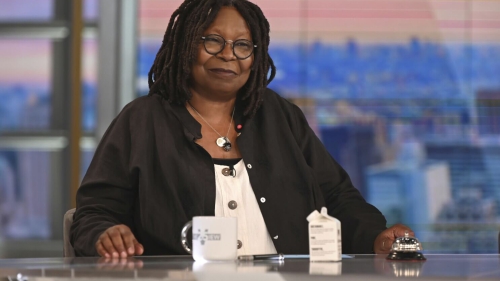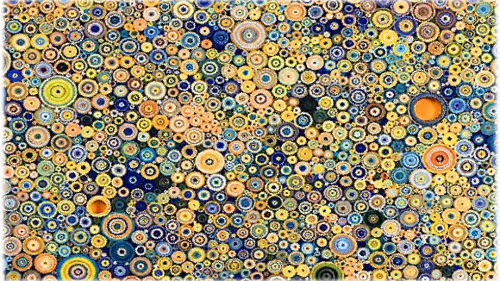Marx brothers, Black Beauty & holocaust

A friend of mine was visibly upset the other day when some books he had brought from abroad were confiscated at one of the Arab airports. "They were just ordinary books", he complained. "Why did they have to take them?" It is a difficult question to answer, especially in a country where satellite dishes bring all sorts of information, unimpeded, into our homes. Still, I cannot understand for the life of me why in this day of the information superhighway, whenever someone arrives at certain airports, the eyes of custom officials narrow as their hands seize books, newspapers or magazines in the passengers' baggage. The attitude behind this seems particularly inexplicable when we remember that God's first word was "Read".
My friend's experience reminded me of an incident in the early 1970's when a colleague of mine arrived with a book entitled The Marx Brothers. Horrified custom officials threw up their hands in the air, shrieking as they stared at it. It was during that period in Arab history when the so-called intelligentsia were enamored of Karl Marx. The Soviet Union was still a military giant and a battle for young peoples' allegiance was underway between capitalism and communism.
My friend, a soft spoken person, patiently explained to them that this book had nothing to do with Karl Marx, the main architect of communism. Rather it was the story of Groucho, Harpo and Chico Marx, the legendary American comedians. "Are they related?" asked the custom officials, puzzling over what they should do with this "hot item." "Not by a long shot" was the reply.
This incident is a sad reflection of the way many in that long-past Arab world dealt with books. Even now, regrettably, there seems to be a fear of books. It is difficult to understand why. Communism and socialism are both dead. A new world order has appeared. The focus is on the right of man to exercise his freedom of speech and thought. It is indeed a global village where information, data and knowledge are available everywhere from virtually every source at the push of a button.
And yet, we see that antiquated and out-dated systems of censorship still prevail. Long patches of black sometimes hide parts of otherwise good articles. I am as annoyed and depressed by this as anyone else. In fact, remarked a diplomat, "The worst sight for me is to see a newspaper smeared in black." I can imagine his frustration as many others, and certainly I, feel the same way.
What upsets people is why others should decide what should or should not be read. Personally, I am absolutely against pornography and material deliberately insensitive to our culture and tradition. However, it angers and depresses me to see an article or editorial torn out or smeared with black.
Why not keep it there so it could be answered by our opinions on the editorial page? There are many qualified writers, journalists and intellectuals in the Gulf who could offer a sound rebuttal and competently refute any lies. How can they do so if they have no access to what is being written about them?
The problem of censorship is not peculiar to the Arab world. It also exists in the West where it is more devious and cunning. I have two examples to support my statement. Most striking is the story that appeared about a decade ago in a leading British Sunday paper about the acquisition of Boeings by Saudi Arabian Airlines - the Kingdom's national carrier. The story was outrageously false, devoid of fact and based on the wildest rumor and hearsay. I immediately dispatched a letter to the editor, anxiously awaiting its appearance in the paper. I also took the precaution of having the same letter dispatched to the paper from a London address. When neither letter appeared, I prevailed upon the late Peter Mansfield, a well-known British journalist and a friend to deliver the letter personally to the paper.
A few days later, I received a letter from the editor. He thanked me for the views expressed in my articles but said he did not agree with me!! What he conveniently forgot was that my disagreement was even more relevant for his readers because it gave the other side of the story. This, then, is censorship in the West. I call it "subversive censorship." You have the freedom to write or broadcast but there is effectively a block out for the other party to air his views and concerns.
In another, more recent, incident, WSPD Radio of Toledo, Ohio made derogatory remarks about Arabs and called them "greasy." The Greater Toledo Association of Arab Americans (GTAAA) immediately contacted the Radio Station and demanded an apology.
The Radio's Vice President and General Manager, Andy Stuart, assured the Arab Association that "it is not the policy of WSPD to offend its audience." Yet the Station has consistently refused to air a public apology.
These two instances illustrate how powerful and even not-so- powerful media organizations censor the right of reply. They scream and shout about the right of free speech and the freedom to publish. They protect Salman Rushdie, meet and embrace him and flaunt his offensive works in our eyes. At the same time they have passed laws mandating imprisonment and fines to anyone who questions the holocaust. To say that the holocaust did not occur is tantamount to treason in the United States. Perhaps a far worse fate will face the foolhardy writer or intellectual who dares to touch this explosive issue.
You cannot even say that five million nine hundred and ninety nine thousand and ninety nine Jews died in the holocaust. It has to be six million. And the figure six is pounded into our heads by its repeated and monotonous usage. Thus you see "The Six Million Dollar Man", "Lotto Six", "The Six Hundred Jews of Sarejavo" and so on and so forth ad infinitum ad nauseam.
While no one doubts - and all condemn - the sufferings of the Jews before and during the Second World War, others too suffered atrocities of an unbelievable nature. Twenty million Russians died as did Chinese, Japanese, Germans and Indians. Yet no media light is cast on their stories or their equally horrifying figures.
Censorship, therefore, becomes an insidious part of many societies considering themselves liberal and promoters of free expression. Yet they too ban books when it suits them.
In France several books of Shaikh Ahmad Deedat were banned as was Ali Izethogwich's book. This is, of course carried out in a very quiet and cloistered way. Collective efforts by hidden hands do not allow us to gain access to certain facts. While any word offensive to some ethnic groups is sure to cause outcries, anti-Arab stereotypes, as in the movie "Father of the Bride, part II" , are on the increase. Can you imagine who played the Arab gentleman, Mr. Habib. A comedian by the name of Eugene Levy.
Censorship, in truth, has its funny side too, and custom officials all over the world share many common characteristics. In South Africa, during the apartheid era, a British lady from Brighton had the book Black Beauty confiscated at Johannesburg airport. Apparently the Afrikaner customs officer believed it was the story of a beautiful African princess. The book, as most of us know, is the story of a horse and it was a favorite of school children in Britain and her former colonies.
It was, I thought, an incident similar to the Marx brothers story.
Surely it is very important for us Arabs to realize that as we approach the 21st century we should learn to drive on the information super highway. Today is the day of the Interenet, tomorrow there may be a replacement. Who knows what other future "nets" may transmit information with the speed of light?
No amount of censorship will be able to stop access to knowledge and data. Millions of computers around the globe will be "speaking" to each other and passengers will be arriving at airports with "disks and chips". And I am not talking about anything to do with potatoes.
In that day, as an Arab intellectual remarked, "The censor will then be as extinct as the dinosaur."
Will that necessarily be a bad thing?

















